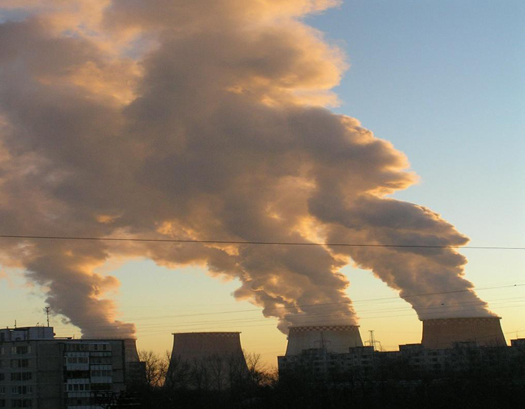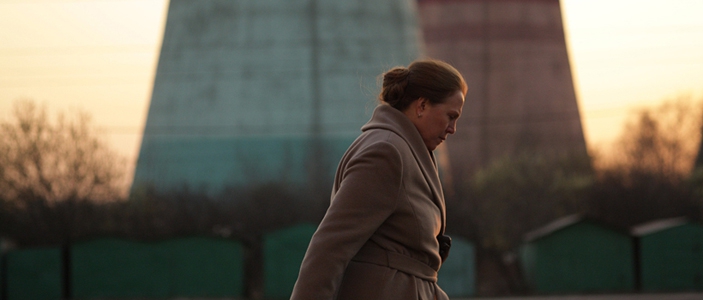Heart of a Dog [i]
06/26/2011
The Russian Revolution of 1917 and Michail Bulgakov gave birth to a new biological species – the "dog-man" Sharikov. The network revolution of the 21st century gave birth to the "Anonymous Man". The Anonymous Man is a crafty creature that is almost as clever as a dog. The Anonymous Man has neither fortune, nor any features. Yet for all that, when herding together the Anonymous Men become omnipotent and rather invincible. In ancient times the Anonymous men used to have another name: “the People". And the People shall always "have the right". The Anonymous Men throngs the Internet step by step. Then they crawl up to the Tahrir and the Manezhnaya Squares like zombies from a horror movie. Africa's colonels are trembling in fear. The Persian Gulf's sheiks are hiding out in corners. The faces of the former masters of Europe are painfully pummeled by statuettes. In Russia, Alexey Navalny[ii] raises the Anonymous Men against the power of "Thieves and Swindlers". The town folks are throwing themselves under boyars' sleds with flashers. The idols of the past, feudal judges Yuri Luzhkov and Nikita Mikhalkov, are flying down from the bell tower to the ground.
On the other hand, the fate of the idols of the present, the "people's protectors", is not particularly better as well. As soon as you raise your head a little above the crowd of Anonymous Men and become a bit wealthier, smarter or luckier, you are punished. You, Navalny, and you, Shevchuk: once you've struck a pose - get a whack! The anger of the Russian Anonymous Man finds its allegorical counterpart in the left-wing and liberal cinema – a so-called Russian “New Wave”. Almost all Russian important movies of 2006-2010: Help Gone Mad, Wolfy, Wild Field, Yuri's Day, School, Russia 88, The Revolution That Wasn't and the quasi-national My Joy, look at the reality from a little man’s position. Ilya Demichev's Kakraki is a rare exception. A war between the power and the people, the aristocracy and the plebs is looming.
And now, against the background of the egalitarian and left-wing cinema, against the background of the increasingly powerful mob, Andrey Zvyagintsev makes Elena, the most anti-popular film in twenty years of the New Russia. This picture, in the context of the current political life, may become the Elite’s banner in the war against Sharikovs of all sorts. We have seen nothing of the kind since Vladimir Bortko's Heart of a Dog.
If we discard the metaphors and fall vulgarity, the plot of Elena can be described as a battle between relatives for a luxurious apartment on Ostozhenka Street. A topic for the popular TV show Time of Court. The "new aristocrats": youngish millionaire-pensioner Vladimir (Andrey Smirnov) and his heiress she-devil Katya (Yelena Lyadova) confront the "grassroots people": Vladimir's wife, medical worker Elena (Nadezhda Markina), her unemployed son Seryozha (Alexey Rozin), her daughter-in-law Tanya (Yevgeniya Konushkina), and her grandchildren – a chav and deviationist Sasha (Igor Ogurtsov) and an Anonymous baby.

The battle unfolds in a slow even in a highbrow manner. But at the peak of the conflict, Elena and her simple-minded son Seryozha begin to quote Shvonder and Sharikov almost verbatim as an irrefutable argument. Sharikov: 'I didn't go to college I don't own a flat with fifteen rooms and a bathroom. Only all that's changed now – now everybody has the right to...' Shvonder: 'We, the house management, have come to see you as a result of a general meeting of the tenants of this block, who are charged with the problem of increasing the occupancy of this house...' Elena: 'What right do you have to think that you are special? Why? Why? Only because you have more money and more things?' Seryozha in reply to the refusal to provide him with another perpetual loan: 'Well, what a shit!' 'What a fucking tightwad!' (read: 'Where would I eat?'). Elena cleans out Vladimir's safe without a shadow of a doubt, just like Sharikov, who steals two 10-rouble notes lying under a paperweight in Philip Philipovich's study.

After the World War I Europe was horrified at the scope of the slaughter occurred. It seemed that nobody would ever think of repeating this fault. In the 1920s some journalists interviewed the renowned philosopher of history Oswald Spengler. The question was asked, 'Will the World War II occur?' Spengler answered, 'It certainly will'. The journalists were taken aback and asked another question, 'When and why?' Spengler smiled and answered, 'In 20 years. Because a new generation, which knows nothing about the World War I, will grow up by that time'. After social experiments of the 20th century it also seemed that the world could never be plunged again into a search for the "Great Sacred Truth". It seemed so in 1989-1993.
…20 years passed.
A generational change has occurred. Now socialism and its "charms" is pure abstraction for people under 35. A mental construction. The departure of the famous Russian actors Gurchenko, Kozakov, Lazarev (this list can be continued infinitely) has had far more terrible effects that we can imagine. Over 70 years the late-Soviet intelligentsia, though alien to the consumer society, has managed to develop immunity to communist idealism and any idealism in general. It is mainly people over 35 who reign over the minds in the society and rule the country. Editors-in-chief and directors, actors and ministers of the 1990s, who had lived through the Brezhnev years in the USSR in their middle age and knew all the advantages and downsides on their own back, maintained healthy skepticism, a certain distance to the idea of social equality. And then they began to disappear one after another. There are now only 18 persons still alive from amongst those who signed the Letter of Forty-Two[iii]. And leftist, communist ideas, which become increasingly popular in the Russian society now, invade Russia exactly as a result of the generational change.
The new generation is seizing power in ideology and is eager to steer the country. Not only in this country, but all over the world. The countless new leftists such as Prilepin, Udaltsov, Mantsov remember only the grudges of the 1990s. For them, the USSR is their early idyllic childhood. The new representatives of the culture idealize the socialist past. By the way, not only the Soviet, but any past. All ills of life in the modern in the Medvedev’s and Putin’s Russia are clearly seen as well all woes in the present Albania, Kiribati or Canada are easily seen to Albanians, Kiribatians or Canadians. The past, the days of yore always look beautiful and magnificent.
The base of network forums is made up of the persons of 17 to 33 years of age, those, who were 13 at the most in 1991. For them, bellowing 'Long live Stalin!', 'Heil Hitler!' or 'Hare Krishna!' is a pleasant banality between masturbations. There would be nothing to worry about, but owing to the Internet the Anonymous Sharikovs created a superiority in the cultural and ideological spaces. In the 19th or 20th centuries their scribbles would have not been accepted even by a district evening paper. The technical revolution gave the foor for billions of fools beautiful in their silence until now. The onset of Seryozha from Lianozovo, the Egyptian rabble or the Kyrgyz louts is not just the illegal seizure of luxurious apartments in Moscow, Cairo or Bishkek. It is the collapse of Mind and the triumph of the Beast.
In comparison with The Banishment that alienated many viewers due to the metaphorical language, the plot of Elena turned out to be plain and clear. One of the reasons for this is rather prosaic, namely the 2009 economic crisis. As is known, the director planned to work in more expensive projects. But the ambitious plans had to be rejected in favor of the budget-priced Elena. It is possible that the film was enriched by this forced economy and became more understandable and intimate for domestic and Cannes critics.
The film is filled with whole blobs of immediate reality, in which many may recognize themselves and the circumstances of their own lives. Biryulyovo, a 2x3 m kitchen, beer in the evening; this is the world of Elena's descendants. The Enjoy fitness club, fashionable apartments on Butikovsky Pereulok costing 3 or 4 million euros; this is the world of Vladimir and Katya. The background television broadcasting, which intoxicates the characters' minds and lures them into future iniquities, acts as the national idea linking Butikovsky Pereulok and Biryulyovo together. When watching Elena, note the popular TV shows Malakhov +, Control Purchase, Living is Great murmuring in the movie, as well as the remarks about magazines for dear women, scanwords, crosswords and erotic magazines. The innocent calls 'to change the vector of your taste preferences', 'to make healthy food tasty' ominously transform into philosophical generalizations: 'This is just a typically Soviet system, they just absolutely have to load up a person hoping that afterwards they… Maybe, he will manage to steer out by the end of the season'. Or, 'the country will be appalled by the fact that everything's going to repeat itself with you, I swear, you're going to cry for all you've done, and you'll also pay for everything'. Apropos, there will be a fleeting remark which can reveal a lot in the destiny of director himself and, consequently, solve some unsolved puzzles from The Return, The Banishment and the novella from New York, I Love You.
While criticizing the plebs, the author of this text has to admit with bitterness that he himself is like Seryozha to a considerable degree. A small apartment, four children, infantilism, dependency, lying on the sofa, sitting by the computer, Baltika No. 9 beer in the evenings, mornings and afternoons, cadging money from the parents; all this is about me. I hate Sharikov in me. It seems to me that I am a different, an entirely different person. It seems to me so. I believe it very much indeed.
In spite of its cinematic and social novelty, Elena remains characteristically Zvyagintsev's film all the same. The autheur's unique signature style is easily recognizable. You can make sure of that by watching his early short films – Busido, OBSCURE, Choice, his latest novella from the almanac Experiment 5ive+ released after Elena. But, after all, German, Muratova and Tarkovsky had been "making a single film" for their whole lives. The individual signature is a sign of mastery.
In Elena, we again observe a conflict within a family and stern conversations with Father. And again, we can hear laconic and significant dialogs. This is the signature of Oleg Negin, Zvyagintsev's regular screenwriter. Negin always weaves the plot web unhurriedly, but cunningly catches the viewer in it. Mikhail Krichman is the cinematographer, who depicts even Moscow during a fair in celadon, enamel shades, slightly desolate. Long takes prevail. 30 to 50 seconds. It seems that even props, which in real life may lie about in corners, are deliberately removed from the depth of the shot. A clever effect is achieved in this way. Despite the fact that Moscow is still recognizable, it nevertheless seems slightly parabolic. Amongst Elena's distant relatives, Krzysztof Kieslowski's The Decalogue with its desert theology of Warsaw blocks is perhaps the closest one.
But notwithstanding its political valence, Elena is not a political movie is the modern sense of the word. In his numerous interviews Zvyagintsev harshly rebukes the modern society in the spirit of 'Everything was sold to America long ago!' And in Elena the new elite also recognizes itself as "rotten seed" that has no future. Zvyagintsev is equally distant from both the Reds and the Whites. Nevertheless, in the swirling of 2011 the film is oozing with political connotations and play on the side of counterrevolutionaries. Its anti-people pathos strikes the eye, while the anti-elitist one is barely visible. The fact that his movie began to be perceived as a political manifesto from the very first reviews will probably be unpleasant to the director. For him, Elena is first of all a conversation about the 'mystery of the downfall of the society's spiritual state', about the end of the world, not about the degeneration of political parties.
Elena is an ideology, but not a provincial, red-white ideology; it is an iconoclastic, millenarian ideology. A total protest against renaissance humanism, whose native children are both Marxism and liberalism, looms behind the façade of superficial interpretations. Elena is a protest against the modernism and its offspring, hedonism. A protest against anthropocentrism, the highest value of which is the human being. The crucial moments of The Banishment, the Return, and Elena are the sacrifice of man in the name of something other. Of something what? As Aristotle said, to offer only something human to people means to deceive them and to wish ill to them, because people are called by their main part, which is soul, for something greater than just an ordinary human life. And Heidegger echoes him, 'The meaning of existence is to allow being to be found as the "glade" of all things in existence'.
The trick is that within the depth of Elena there is hidden fundamental ontology, which extends from the Greek to Martin Heidegger. And upon this foundation of ontology, the building of heroism, valiance and honor, in essence, noble, aristocratic ethics is constructed. According to Zvyagintsev, happiness, love, and even prosperity, should cost VERY much. What bourgeoisie, what "bubble gum"? Where is the socialistic concern about people's everyday life? Just the other way around, the road to Hell is paved with good intentions: abortions, doctors-killers, and beer with vobla.
Paradoxically, new Zvyagintsev's movie plays in the field of pochvennichestvo and aristocratism, where Nikita Mikhalkov is our leader. However, the fundamental difference between Europe's favorite and Besogon is that Zvyagintsev pours out limitless oceans of doubts. Where Mikhalkov has ready answers: "Motherland", "homestead", "honor", Zvyagintsev has only questions. Zvyagintsev hints, never dictates. For which he is loved by progressive people. His oeuvre resists interpretation, and resistance, in its turn, stimulates new interpretations.
The film Elena has a deep bottom. And the author of a single review cannot possibly reach it.
Evgeniy Vasiliev
Ruskino.ru
| Heart of a dog a novel by Mikhail Bulgakov, is a biting satire of the New Soviet man written in 1925. | |
| [ii] | Alexey Navalny is a Russian political and social activist who in recent years gained great prominence amongst Russian bloggers and mass media due to his social campaigning activity. |
| [iii] | The Letter of Forty-Two was an open letter signed by forty-two well-known Russian literati, aimed at Russian society, the president and government, in reaction to the events of September – October 1993. It was published in the newspaper Izvestiya on 5 October 1993 under the title “Writers demand decisive actions of the government.” |
